
The kitchen garden, or potager. This is an excellent use of the formal style to contain vegetables & give structure to a kitchen garden. In gardens such as this, there are echoes of baroque France.

This is a folly in the woodland garden. The structure, which is part fountain & part Greek temple with a definite air of ruination, was built in a style popular in gardens during the late 1980s & early 1990s in the Seattle area. It falls into the category of postmodern architecture. If it remains, I'm sure it will be interesting from a historical perspective.
Thanks to Max P. for identifying this as Symphytum x uplandicum 'Axminster Gold' There are no plant tags at Heronswood.
Heronswood is quite a famous place among plant enthusiasts in the Seattle area & known around the world by horticulturalists familiar with the botanical collections of Dan Hinkley, who established the gardens & a nursery with his partner Robert Jones on 15 acres on the Kitsap Peninsula outside of Kingston, WA in 1987. They lived in a house on the property. The gardens have been featured internationally as an example of creative, environmentally sensitive & botanically impressive garden design.
The garden & nursery business were bought by the W. Atlee Burpee Company for close to $4.5 million in 2000. Burpee closed the garden in 2006 & moved many of the nursery plants to sites on the east coast. The Heronswood botanical garden and Heronswood Nursery Company was sold to the Port Gamble S’Klallam Tribe in 2012. Burpee originally asked $11 million for the property. The tribe bought it for less than $1 million.
In 2001, Valerie Easton wrote for the Seattle Times: Last summer, gardeners gasped over the sale of homegrown Heronswood to W. Atlee Burpee. It seemed an unlikely union. Heronswood has a worldwide reputation for being first with "gotta-have-it" plants, while Burpee's image is as stodgy as the familiar annuals and vegetable seed it has offered for 125 years. But why would Heronswood, with all its success and even adulation, join forces with Burpee? Hinkley says they weren't looking to sell, but explains, "Robert and I were drowning in the responsibilities of this thing we had created . . . there was no down time."
Hinkley and Jones plan to make good use of that newfound time. They'll continue to manage the nursery. Jones, an architect, is designing a new house, where they look forward to having a smaller, private garden. Hinkley is scheduled to give 57 talks in several countries this year, hopes to finish the three books he is writing, and plans to devote more time to expeditions. He'll journey twice to Europe and Japan this spring and then to Nepal or southeast Tibet in the autumn, bringing back yet more plants to excite us.
In 2006, Anne Raver wrote for the New York Times: On May 30, the Heronswood Nursery gardens in Kingston, Wash., the horticultural paradise that Daniel J. Hinkley and Robert Jones started 19 years ago with a single truckload of rare plants — which eventually grew into a collection that would change the face of American gardening — were closed by W. Atlee Burpee & Company, the nursery's corporate owner. Mr. Hinkley said in a telephone interview that George Ball, Burpee's C.E.O., and three of his staff members came that day from Burpee's Pennsylvania properties to dismiss Mr. Hinkley and most of the nursery's 24 employees.
Heronswood is quite a famous place among plant enthusiasts in the Seattle area & known around the world by horticulturalists familiar with the botanical collections of Dan Hinkley, who established the gardens & a nursery with his partner Robert Jones on 15 acres on the Kitsap Peninsula outside of Kingston, WA in 1987. They lived in a house on the property. The gardens have been featured internationally as an example of creative, environmentally sensitive & botanically impressive garden design.
The garden & nursery business were bought by the W. Atlee Burpee Company for close to $4.5 million in 2000. Burpee closed the garden in 2006 & moved many of the nursery plants to sites on the east coast. The Heronswood botanical garden and Heronswood Nursery Company was sold to the Port Gamble S’Klallam Tribe in 2012. Burpee originally asked $11 million for the property. The tribe bought it for less than $1 million.
In 2001, Valerie Easton wrote for the Seattle Times: Last summer, gardeners gasped over the sale of homegrown Heronswood to W. Atlee Burpee. It seemed an unlikely union. Heronswood has a worldwide reputation for being first with "gotta-have-it" plants, while Burpee's image is as stodgy as the familiar annuals and vegetable seed it has offered for 125 years. But why would Heronswood, with all its success and even adulation, join forces with Burpee? Hinkley says they weren't looking to sell, but explains, "Robert and I were drowning in the responsibilities of this thing we had created . . . there was no down time."
Hinkley and Jones plan to make good use of that newfound time. They'll continue to manage the nursery. Jones, an architect, is designing a new house, where they look forward to having a smaller, private garden. Hinkley is scheduled to give 57 talks in several countries this year, hopes to finish the three books he is writing, and plans to devote more time to expeditions. He'll journey twice to Europe and Japan this spring and then to Nepal or southeast Tibet in the autumn, bringing back yet more plants to excite us.
In 2006, Anne Raver wrote for the New York Times: On May 30, the Heronswood Nursery gardens in Kingston, Wash., the horticultural paradise that Daniel J. Hinkley and Robert Jones started 19 years ago with a single truckload of rare plants — which eventually grew into a collection that would change the face of American gardening — were closed by W. Atlee Burpee & Company, the nursery's corporate owner. Mr. Hinkley said in a telephone interview that George Ball, Burpee's C.E.O., and three of his staff members came that day from Burpee's Pennsylvania properties to dismiss Mr. Hinkley and most of the nursery's 24 employees.
Heronswood opened to the public for the 1st time in 7 years on May 18, 2013. As you might expect, the gardens don't look as nice as they once did. I haven't been there since before it was sold in 2000. But the place was not a disappointment. One would hope to see steady improvement in the future.


































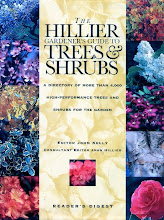

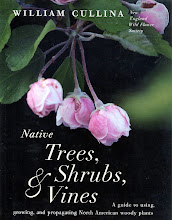






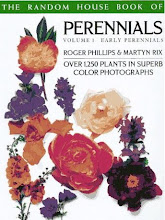


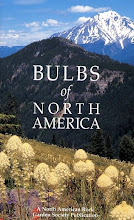






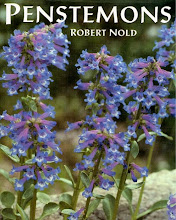

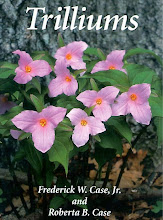


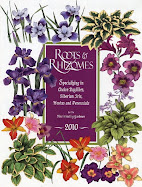
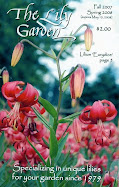

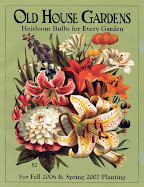

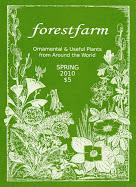


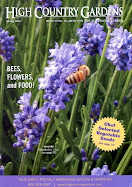

4 comments:
Looking at the wonderful photos and then reading your comment that the gardens are not as wonderful as they once were, boggles my mind. They seem amazing to me, but perhaps you need to be up close and personal. I remember reading when Heronswood was sold and the outcry from the public. I am glad to hear someone is rescuing such a fantastic property.
I hadn't seen Heronswood in at least 10 years. It was more impressive then, more full of plants, particularly in the woodland garden, where I didn't get any good photos.
The unidentified plant looks like a Symphtum x uplandicum 'Axminster Gold'
-Max P.
Thank you Max P. That was good to know.
Post a Comment